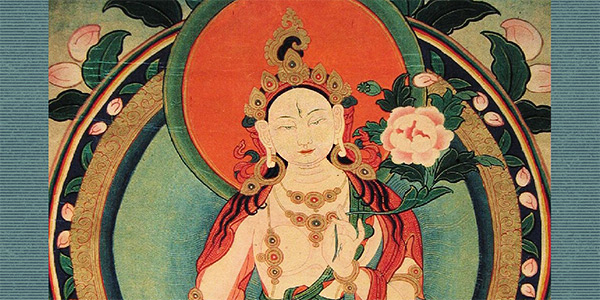by Nalanda Institute
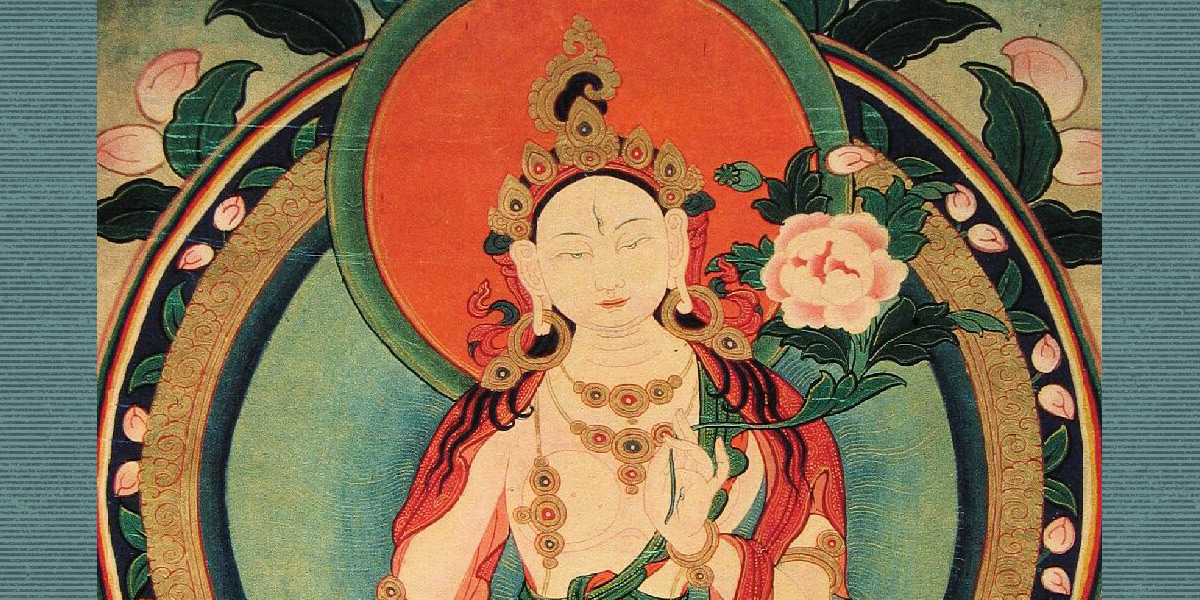
This meditation is from our Fall 2023 Certificate Course in Wise Compassion, led by Pilar Jennings, PhD, author, psychoanalyst and one of Nalanda Institute’s core teaching faculty across our Certificate Courses within our Contemplative Psychotherapy Program—including our Fall 2024 Certificate Course offerings.
In this meditation, Pilar offers guidance on how to settle into the body and lean into the practice of becoming more attuned to and aware of our own suffering, as well as the suffering of others. Pilar then invites us to apply tenderness to the suffering. Both meditating on awareness, and cultivating tenderness, can help us to lay the foundation for personal and social healing.
Enjoy!
En este audio, Pilar Jennings nos ofrece orientación sobre cómo asentarnos en el cuerpo y dedicarnos a la práctica de estar más en sintonía y ser más conscientes de nuestro propio sufrimiento, así como del sufrimiento de los demás. A continuación, aplicamos ternura. Meditar sobre la conciencia y cultivar la ternura puede ayudarnos a sentar las bases de una curación personal y social.
Meditación traducida por C. Gutiérrez
Neste áudio, Pilar Jennings oferece orientação sobre como se acomodar no corpo e se dedicar à prática de nos tornarmos mais sintonizados e conscientes de nosso próprio sofrimento, bem como do sofrimento dos outros. Em seguida, aplicamos ternura. Meditar sobre a consciência e cultivar a ternura pode nos ajudar a estabelecer as bases para a cura pessoal e social!
Meditação traduzida por I. Zenteno
Find out more about Nalanda Institute’s Contemplative Psychotherapy Certificate Courses starting Fall 2024:
Contemplative Psychotherapy Program Overview
Certificate Program in Wise Compassion
Certificate Program in Embodied Wisdom
Programa de Certificación en Sabiduría Encarnada
Programa de Certificação em Sabedoria Corporificada
by Alexa Owen
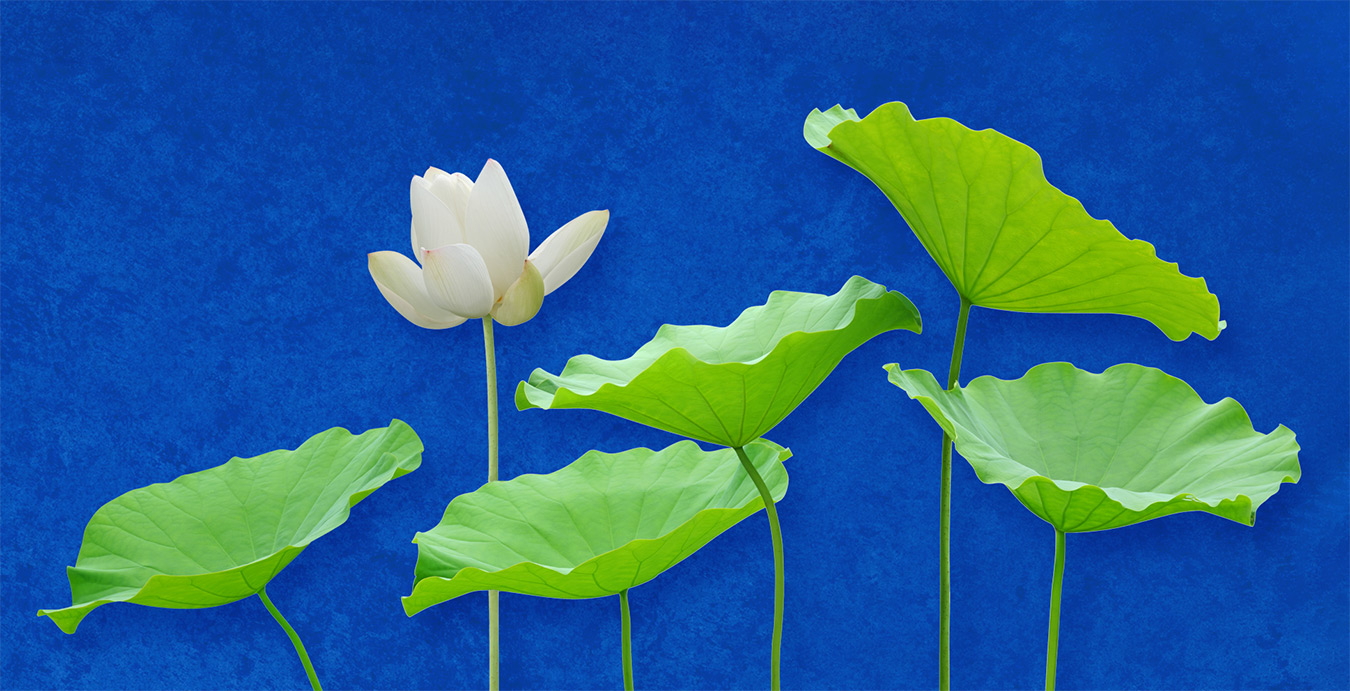
Contemplative science is widely recognized as a growing support for a number of populations: patients of chronic pain and illness, caregivers, mental health practitioners, and more. Colleges, universities, and graduate programs alike are also expanding to offer practices like meditation and yoga for students and staff. We can only hope that this growth continues—and not just for the sake of stress reduction, but for the opportunities such practices offer to embody compassionate, resilient, altruistic ways of being in the world.
by Joe Loizzo
As you consider whether our program may be right for you, I thought it might help if I share some of the feedback I’ve heard over the years on what makes this program such a transformative journey for people seeking a deeper experience of the confluence of Buddhist contemplative psychology and contemporary life.
We offer a rare integration of rigorous academic learning, deep grounding in contemplative practice, and a learning community of open-hearted sharing led by a world-class faculty of scholar-teachers, scientific researchers, and pioneering clinicians who help make our journey together a truly life-changing experience. (more…)
by Rahshaana Green

When I think of summer, I think of Juneteenth. As a young girl growing up in Houston, TX, I remember it fondly as part of the festivities of summer. Like all summertime holidays, it felt like an extended celebration of the break from school and a celebration of long days waiting to be filled with joyful activities. The smell of barbecue, the sound of upbeat music that made you want to dance — it was a time to gather with friends and family, to eat great food, play games, laugh and enjoy the feeling of togetherness that deepened in the warmth of the sun. I always knew it was “our” holiday. (more…)
by Nalanda Institute
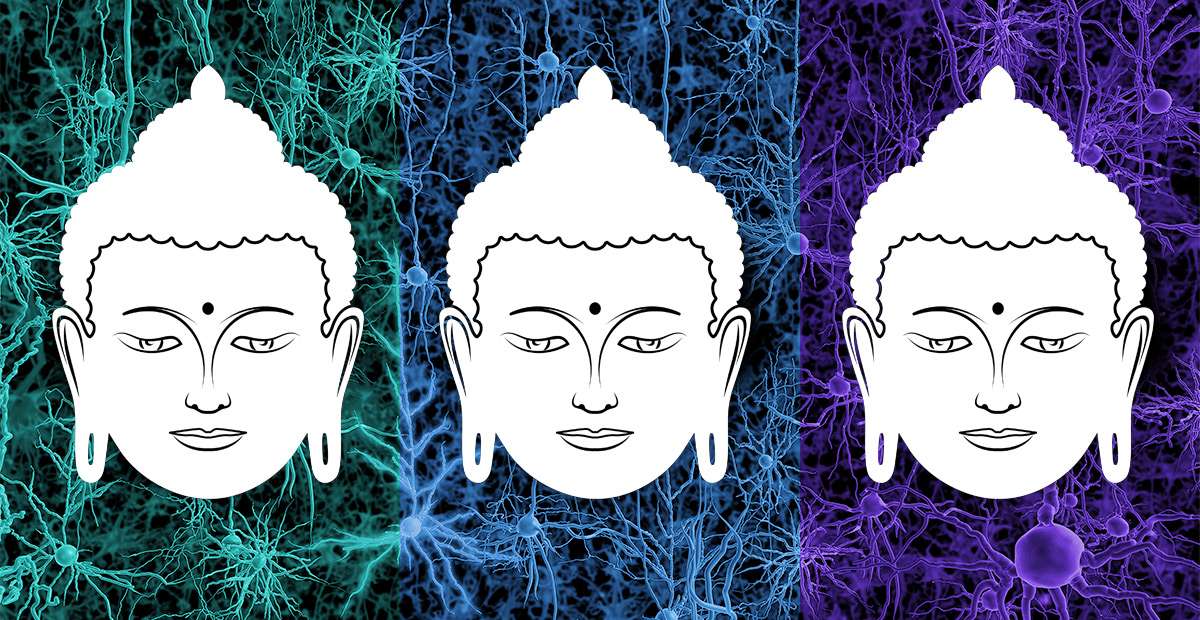
What is Contemplative Psychotherapy?
Contemplative Psychotherapy is a shared journey of deep learning and transformation that prepares therapists and non-therapists alike for an ongoing practice harnessing the healing wisdom and arts of both Buddhist and Western psychology. Contemplative Psychotherapy teaches us how to show up in the world from a more mindful, compassionate, and fully embodied place. It is an invitation to find your own path to deep personal and psychosocial change, rooted in the cultivation of self-awareness, healing dialogue, heart-opening compassion, and embodied intuition and flow.
by Nalanda Institute
Recently, the Compassion Year Live Learning cohort in Nalanda Institute’s Contemplative Psychotherapy Program (CPP), had the good fortune to receive an impactful teaching by the wise, warm, and fiercely compassionate Venerable Robina Courtin. Here is an excerpt of the class, which included a robust question and answer period (not shown here). In her generous talk, Venerable Robina shares how the Gradual Path in the Nalanda tradition embraces both wisdom and compassion, the two wings of a bird that allow our practice to take flight.
Please enjoy this powerful teaching.
by Heather Shaw
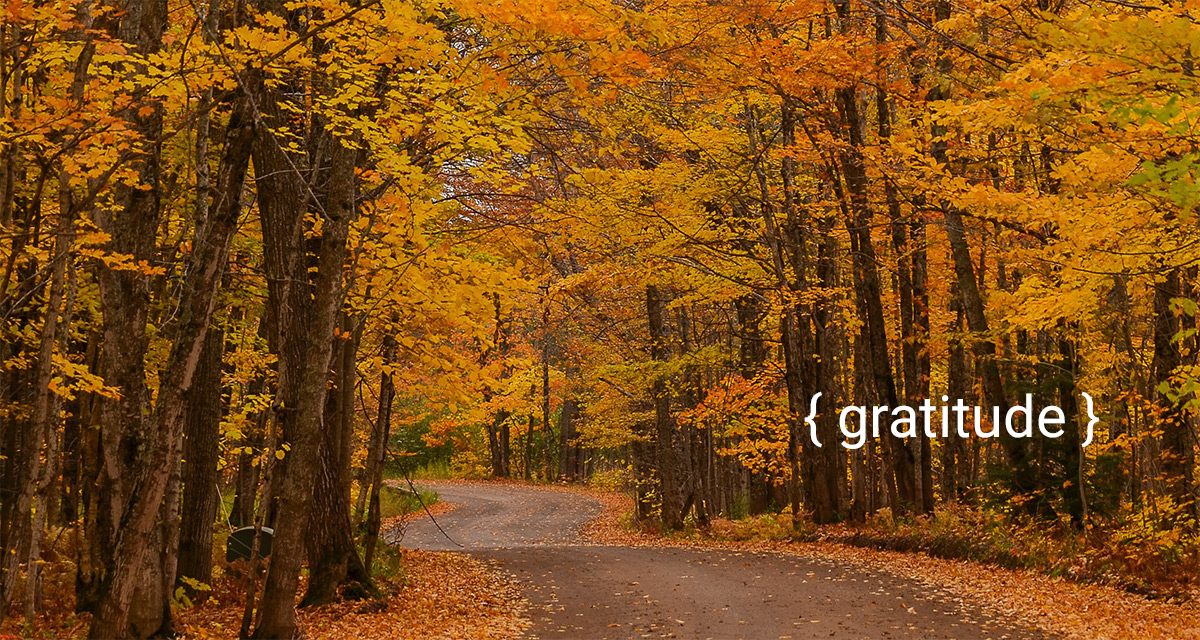
It has not been the best year of my life.
Much of it was spent with a partner battling stage 3 cancer — juggling the regular responsibilities of a family, a job and one very active puppy (which seemed like a good idea at the time) with an added dimension of constant uncertainty and unease. I tried to do everything, and yet so many things came undone. My mother passed away this summer, without a will or even power of attorney, and my father fell apart as a result, emptying their home of every last bit of everything that held a memory and announcing he was relocating from Chicago to my home in Portland, OR immediately because as an only child I was “all that was left.” My left hip was pronounced “severely, prematurely arthritic” and in need of a replacement. Sometime around January, my eleven year-old daughter stopped sleeping — period — and I found myself creating elaborate bedtime routines that invariably always ended in a campout on my bedroom floor so as not to disturb anyone else in the family (an exhausted compromise at best).
By Elazar Aslan

Who hasn’t suffered with a difficult colleague, an aggressive boss, an overly demanding client or a toxic work environment?
Our conditioned response to these situations is typically with an “us vs. them” bunker mentality where we attack and defend or shut down and withdraw, bound by the implicit rules of civility at work or the fear of financial repercussions. These common patterns cause much anguish and loss of confidence in our abilities as the results are rarely positive.
por Joe Loizzo
Publicado originalmente en inglés el 4 de junio de 2020.
Cada año a medida que se acerca el verano me siento a escribir algo celebratorio para las graduaciones de nuestros alumnos del programa de psicoterapia contemplativa y otros programas. Pero después de ver el asesinato desgarrador de George Floyd en vídeo, celebrar se siente imposible.
Mientras el coronavirus devasta los EE. UU., impactando desproporcionadamente a nuestras comunidades negras, mulatas e indígenas y revelando disparidades inaceptables en el ámbito de la salud y desigualdades financieras que exponen el racismo estructural de nuestra nación, vemos reafirmarse a la cultura de la supremacía blanca con los asesinatos de Breonna Taylor, Ahmaud Arbery, Tony McDade, George Floyd y los tuits incendiarios de nuestro presidente.
Pero tal como nuestros líderes negros, mulatos e indígenas nos han enseñado, esta embestida aplastante no es nada nuevo. Observar cómo un policía blanco aparentemente corriente apaga fríamente la vida de George Floyd es ser testigo de la recreación de siglos de opresión a sangre fría contra los negros e indígenas de esta tierra, la repetición de un trauma colectivo tan sádico y psicópata como cualquier genocidio de la historia humana.
by Joe Loizzo
Usually, as summer nears, I would be sitting down to write something to celebrate our recent graduates in our Contemplative Psychotherapy and other programs. But it feels impossible to celebrate anything after watching the gut-wrenching murder of George Floyd on videotape.
As the coronavirus ravages the U.S., disproportionally impacting our black, brown and indigenous communities and revealing the unconscionable health disparities and financial inequities that expose our nation’s structural racism, we see the culture of white supremacy doubling down in the murders of Breonna Taylor, Ahmaud Arbery, Tony McDade, George Floyd and in the incendiary tweets of our president.
But as our black, brown, and indigenous leaders have taught us, this crushing onslaught is anything but new. Watching George Floyd’s life be coldly snuffed out by a seemingly average white policeman is witnessing the reenactment of centuries of cold-blooded oppression against the black and indigenous people of this land, the repetition of a collective trauma as sadistic and psychopathic as any genocide in human history.
By Joe Loizzo
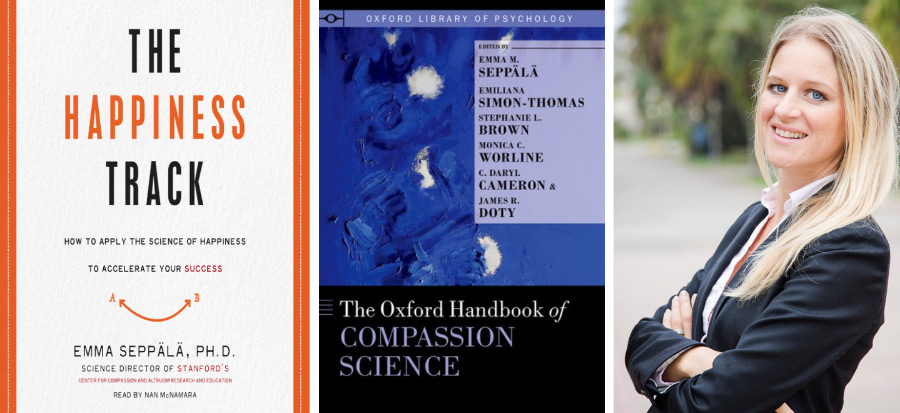
Editor’s Note: In this post Nalanda Institute’s Founder and Director, Dr. Joe Loizzo reviews two books written and edited by Dr. Emma Seppälä, this year’s Guest of Honor at our 10th Annual Benefit (June 12, 2019). As you’ll see, her writing, research, and position as Science Director of the Stanford Center for Compassion and Altruism Research aligns perfectly with Nalanda Institute’s mission. Read on to find out more about compassion in action.
Review: The Happiness Track: How to Apply the Science of Happiness to Accelerate Your Success (HarperOne, 2016), by Emma Seppälä, Ph.D.
For most of the modern age, our scientific view of human nature and our understanding of the social emotion of compassion have been drifting further and further apart. This is no accident. It reflects the widening gulf between modern science and religious ethics that has caused such a troubling divide in human culture and consciousness in our age. Specifically it reflects an intentional distortion of Darwin’s view of human “fitness” to mean that the traditional ethical values of love and compassion conflict with our natural strengths, and that such emotions are in fact sentimental weaknesses. Quietly over the last five decades, biology has begun to heal the modern divide and expose this distortion, helping us rediscover the wisdom in Darwin’s observation that “communities with the greatest number of sympathetic members would flourish best.”
by Geri Loizzo
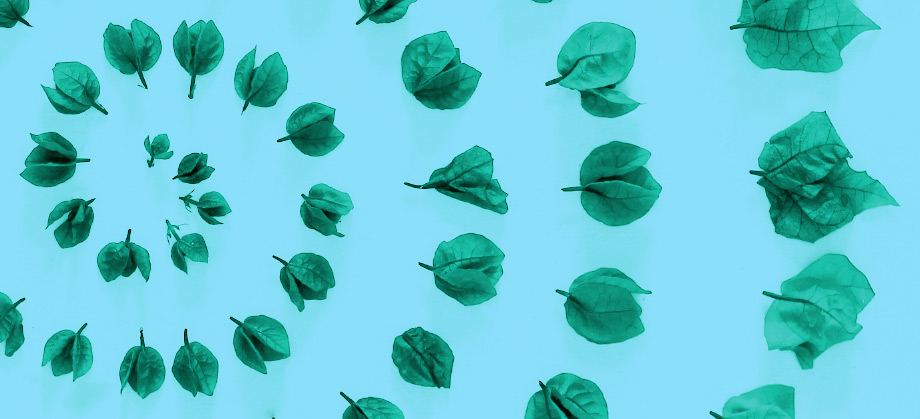
One of my favorite stories found in the Jewish tradition was told to me by my dear teacher, Yogini Mary Reilly Nichols. It’s a story of a young man who goes to see a famous rabbi and is asked by a friend, “are you going to hear the rabbi speak?” “No,” replies the young man, “I am going to watch the rabbi tie his shoes.” He did not mean this as a joke, and he understood that the embodied qualities of enlightenment which the rabbi exuded in his very being, could offer powerful inspiration that he could intuit.
by Geri Loizzo
There’s a reason why I’m so excited about our upcoming Meditation Teacher Training in Compassion. Though we benefit greatly from Mindfulness as the way of personal freedom, or the vehicle for not getting caught up in the stresses of everyday life, it is compassion practice that takes us back to Mindfulness’ ethical roots. Historical Buddha, after all, declared that every mind is noble regardless of race, class or gender. In that sense, his remarkable insights, the four noble truths, were radically compassionate at their very core.
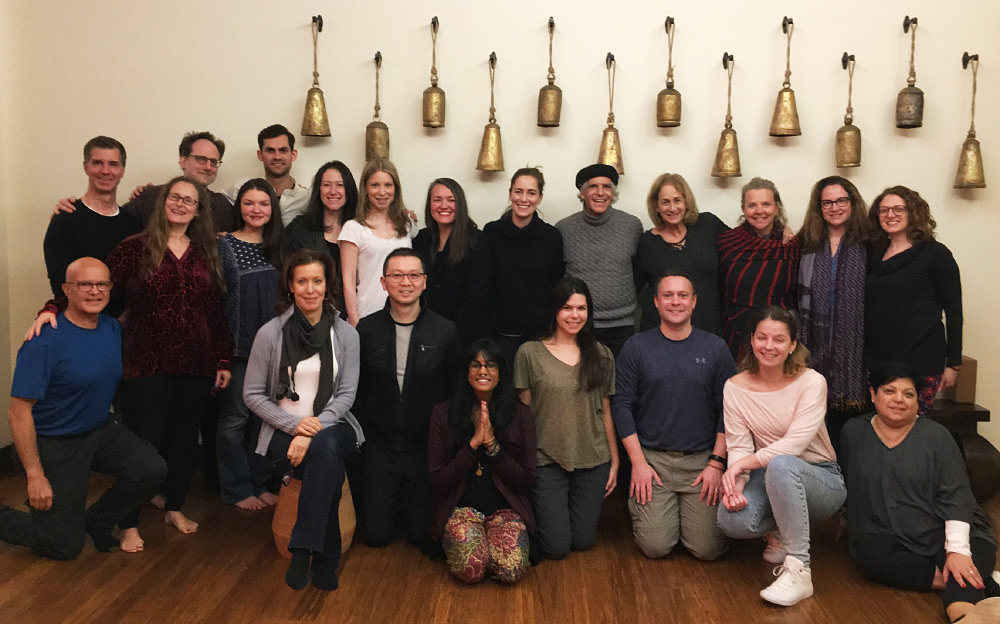
Students and teachers gather for graduation photo at the conclusion of our last training. Congratulations everyone!
Compassion Training is a treasure of practices that have the potential to soften the heart, protect from stress, and bring us closer to our fellow human beings in an ever-widening circle of kin. They are a social gift that keeps on giving.
by Roshi Joan Halifax
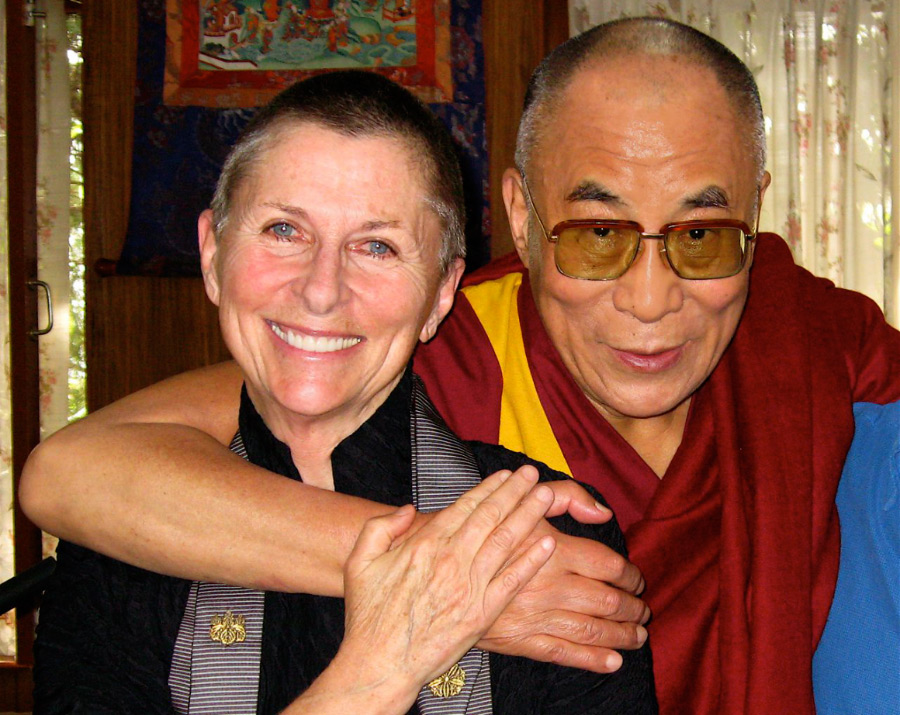
For much of my life I have worked with caregivers in the most challenging of clinical settings—end-of-life care—as well as with activists on the front lines of pressing struggles in social justice and social action. In the course of this work, I have witnessed firsthand the insidious impact of empathic distress in caregivers and activists.

